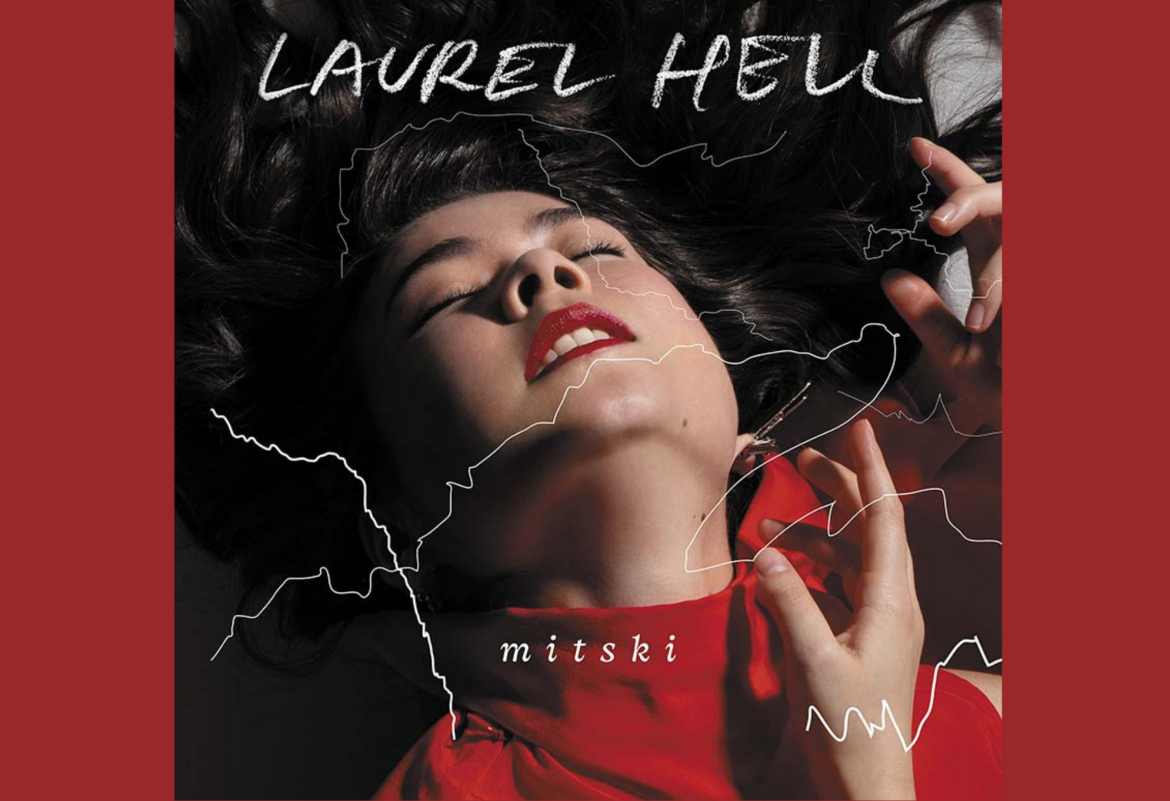The album “Laurel Hell” by Mitski was released on Feb. 4. The album blends indie pop, synth pop and electronic rock with poignant lyrics to create a deep dive into themes of disillusionment and vulnerability. Visual Fair Use of Dead Oceans
Released on Feb. 4, Mitski’s “Laurel Hell” is a multi-faceted exploration of Mitski’s relationship with music, the spotlight of fame, and her flaws and vulnerabilities.
Mitski’s “Laurel Hell,”released on Feb. 4, is a product of Mitski‘s struggle with her role as an emblem for raw, often melancholy Indie music.
In 2019, Mitski announced an indefinite hiatus from music and public life, tweeting “It’s time to be human again” before deleting all of her social media accounts.
Mitski’s return to music comes because, contractually, she still owed her label another album. The future of her music after “Laurel Hell” is uncertain.
Mitski struggles with the paradox of maintaining the excruciatingly personal lyrics she is known for, while still protecting her heart from the kind of numbness and burnout that seems almost unavoidable when one’s career relies on them bearing their soul to the world.
This tension is reflected in her album’s themes, which delve into her struggles with disillusionment, vulnerability, uncertainty and transformation, with frequent tonal shifts both between and in songs. The album is less frantic, less raw than her previous releases, and feels like Mitski’s attempt to put a (still glass) wall between her and her audience.
Throughout the album, Mitski struggles with the paradox of maintaining the excruciatingly personal lyrics she is known for, while still protecting her heart from the kind of numbness and burnout that seems almost unavoidable when one’s career relies on them bearing their soul to the world.
“Laurel Hell,” which stands at 32 minutes long with 11 songs, doesn’t stick to any one genre – seemingly influenced by the music of the 80s, it dances between sounds that include aspects of glam-rock, new wave, baroque pop and electronic. Her musical backings are transcendental, taking each song to an entirely new level of emotion.
As always, her lyrics are a highlight, building fantastical worlds of figurative language and sharing confessional narratives that feel both unbearably individual and all too universal.
As always, her lyrics are a highlight, building fantastical worlds of figurative language and sharing confessional narratives that feel both unbearably individual and all too universal.
Thematically, “Working for the Knife” is the core of “Laurel Hell.” The song reflects her fears that her relationship with her music and fame is unsustainable, filtered through an eerie synthesizer, dreamy piano and guitar backing.
Although the album as a whole is an incredible listening experience, several of the songs are forgettable. Even after multiple listens, one may have difficulty distinguishing between the lesser songs from the overall album lineup.
As what could be Mitski’s farewell to music, “Laurel Hell” is a bewitching, powerful, deep cut into the ugly side of being an artist. “Laurel Hell” needs to be played on repeat to be truly appreciated, but even casual listeners can find pieces of themselves in the album.
More from Natalie Schliekelman
